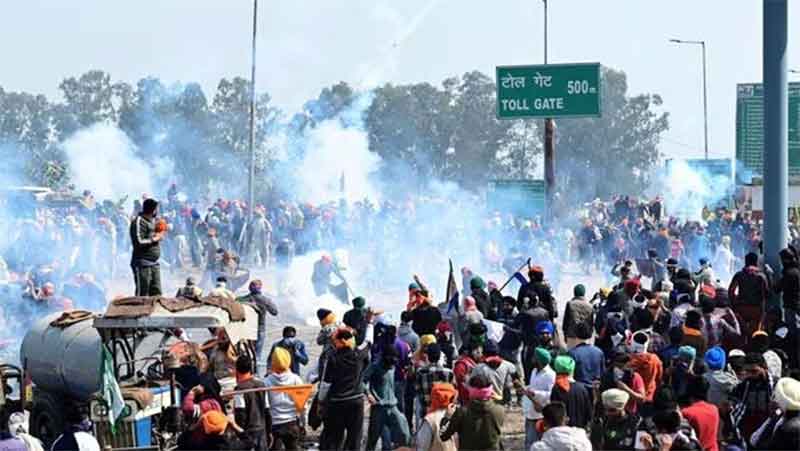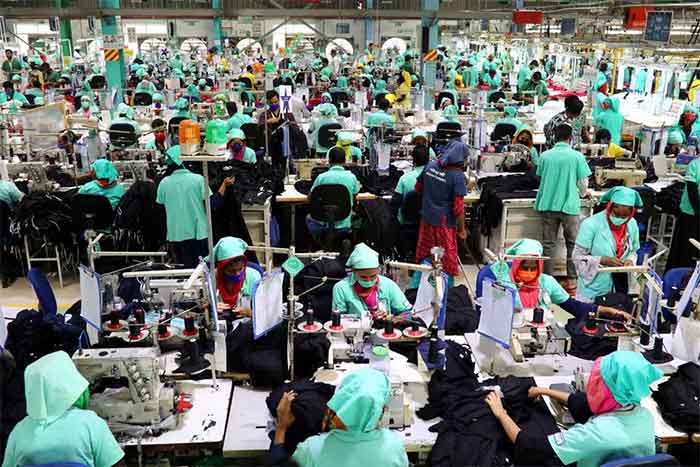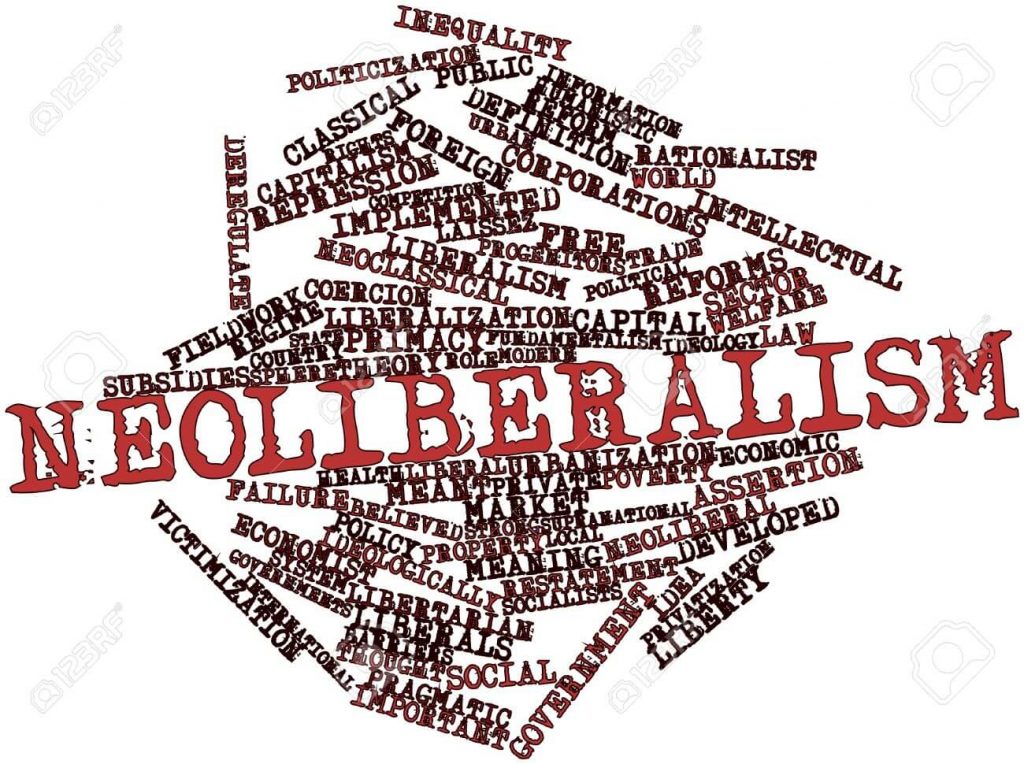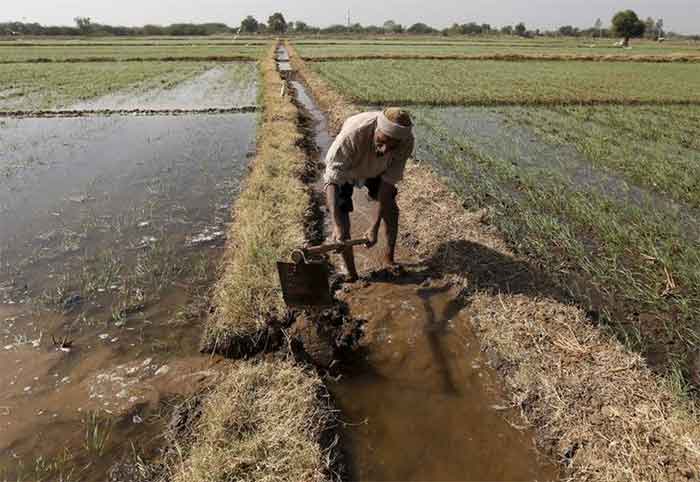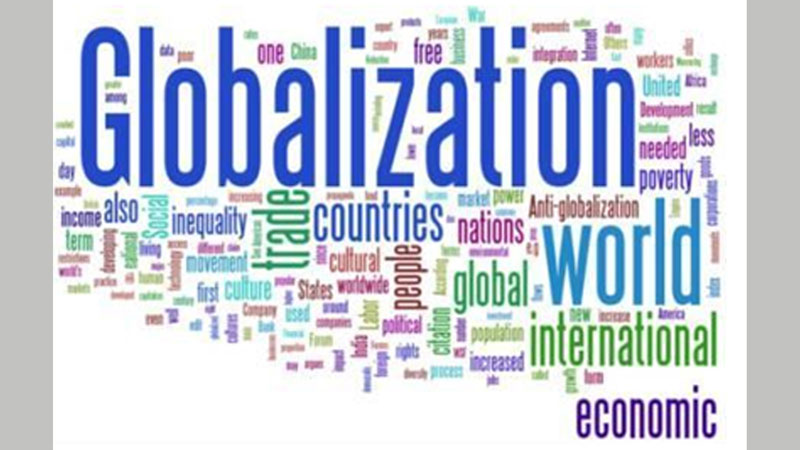
The 12th ministerial conference (MC12) of the World Trade Organization will take place from June 12, 2022 at Geneva, Switzerland.The negotiation note distributed on the different issues on the agenda shows that the WTO is a developed countries’ club. Developing and least developed countries will be the losers if they align with this organization.
The WTO and Free Trade Agreements are based on the comparative advantage theory of free trade. Since India joined WTO in 1995, there have been demands from different sections that the nation must quit it, since its comparative advantage works in favour of corporates. Now comparative advantage theory of free trade is a corporate advantage theory.
India joined WTO and made great promises to India’s farmers. It was stated that increased market access for farmers will mean more exports and additional income. After 27 years of WTO, India’s farmers have suffered, and Indian farmers have been committing suicide in large numbers. Over 10,000 farmers died by suicide in India in 2019.
Cases against India were filed one after the other before the Dispute Settlement Mechanism (DSM), a WTO mechanism for settling trade disputes. India has failed in most of them. After the failure of the case on Quantitative Restrictions (QRS), India removed QRS. Now, developed countries seek to target the Minimum Support Price, which farmers are agitating to protect through legislation.
On May 5 2018, the United States (US) submitted a document in the WTO targeting MSP granted to wheat and rice, the two key food crops. The US’ contention is that the MSP of these two crops (market price support, according to the Agreement on Agriculture or AoA), are well above the limits set by the AoA.
Even though the US has attacked India’s subsidies regime in the past, the attack was never this direct. As Jawaharlal Nehru University professor Biswajit Dhar noted, “Targeting India is the latest in the long list of unfair trade practices that the Trump administration has adopted over the past few months, beginning with the increase in steel and aluminium tariffs, which, incidentally, also targeted India.”[1]
Australia, Canada, the US and Russia have raised disputes on India’s pulses import policies. This will now be discussed with other members at the WTO. Questions have also been raised on India’s policies on sugar exports, dairy sector loans, rice exports and wheat procurement prices.
Australia in its representation raised questions on QR policies related to pulses. The QRs have been maintained on pulses imports to check its inflow and increase domestic production.
On 14th December, 2021 a WTO dispute settlement panel concluded in its report that India was violating its commitments under the Agreement on Agriculture (AoA) by granting price support to sugarcane producers and export subsidies to sugar during the period 2014/15 to 2018/19.
The dispute settlement panel was established in 2019 after Brazil, Australia, and Guatemala had complained to WTO’s Dispute Settlement Body that the Fair and Remunerative Price (FRP) and State Advised Price (SAP), which sugar mills located in the States must pay to their farmers for delivering sugarcane to the mills, were WTO-incompatible. FRP is based on the recommendations of the Commission for Agricultural Costs and Prices in consultation with the State Governments and the sugar industry associations, while the State governments fix SAP. 13 WTO members, including Canada, China, the European Union, Indonesia, Japan, the Russian Federation, and the United States, joined the dispute as third parties.
India appealed against the dispute settlement panel’s decision. If India fails in this case the implications of this dispute can severely limit India’s agricultural subsidy regime. If we have to abide by the very unfair rules on subsidies as per the AoA, India’s MSP on wheat and rice will have to be severely reduced As per the Agreement on Agriculture, a country can only give 10% of the value of production on subsidies and the base year for calculating the price is 1986-88. The net result would be that India will be forced to stop its present MSP and government procurement. All the cases and the explanation on MSP and quantitative restriction will seriously affect the farmers in India. We should not allow WTO to touch our MSP.It would be best for India to make an exit from WTO and protect her farmers’ interests. India must increase import duty to the bound level and bring back quantitative restrictions.
Going by past experience, whenever developing countries and LDCs came together and opposed developed countries and their vested interests, the WTO discussions were stalled for a long time. Developed countries continue their subsidies; these even increase year after year. When discussions were stalled, developed countries pushed through the Trade Facilitation Agreement, without resolving issues that are important for developing coountries and LDCs.
Once the Trade Facilitation was given the go ahead after the Indo-USA deal and the General Council decision of 28 November 2014, the issue of reaching a permanent solution to food stock holding has been sidelined. Instead of resolving this issue and finding a permanent solution, the developed countries started raising new issues like e-commerce, investment facilitation, Small and Medium Enterprises (SMEs), and other issues in the WTO, which are not part of the Doha Development Round (DDR).
Many of these issues will have deep implications for the agriculture sector in India. While investment facilitation is being discussed, “facilitation” often precedes increasing commitments on investment protection and market access in the form of a multilateral agreement on investment. From the current experience with foreign direct investments, this may even increase tendencies for land grabbing. It will affect the conservation of precious natural resources such as water, forests and biodiversity, which will all affect agriculture. Further, investors’ rights can also be used to promote stronger intellectual property rights standards, which can in turn be used to push for control of seeds, patent agrochemicals etc( Ranja Sengupta, TWN breifing paper, 95)
E-commerce will have immense implications for agricultural policy and practices in developing countries. A range of companies are already using digital technology to control data that relate to inputs, production and sale, research and extension services in agriculture. For example, Monsanto aims to create an e-platform through which all agricultural transactions will take place. E-technologies give immense control over agriculture to a few companies, which will take away the decision-making ability of not only governments but also farmers and consumers, with major consequences for their livelihoods, production practices and consumption patterns.(Ranja Sengupta, TWN breifing paper, 95)
We are distressed to note that issues of controlling trade distorting developed countries subsidies, special safeguard mechanism (SSM) and other issues are continuously raised by developing countries, and the needs of the least developed countries (LDCs) are neglected. Measures which benefit agriculture corporates in rich countries take precedence over the demands of farmers in poorer nations.
This year, WTO will discuss subsidies in fisheries too. India has been demanding that subsidies for fishing in distant waters be stopped. India wanted exception for fish subsidies till 200 nautical miles. The present proposals of developed countries will affect fishermen in developing countries.
Developed countries have already developed technologies and vessels, while developing countries like India are still in a nascent stage when it comes to technology for fishing and vessels for distant waters. India accounts for 26% of the world’s fish workers. The percentage of population dependent on fishing in developed nations is minuscule. The revised text circulated by the chair of the negotiating group on fisheries, Colombia’s Santiago Wills, is imbalanced. India and other developing countries want a Special and Deferential Treatment (SDT) on these issues. There is little chance of getting a favourable decision on these issues.
As restrictions on industrial products were removed, products from other countries flooded Indian markets and eliminated many local industries. The best example is Information Technology Agreement (ITA), which has decimated India’s hardware industry and severely restricted employment generation in ICT sector. We lost the policy space, design and value addition capacity and increased imports. If India quits WTO, it will get more control over domestic policy and can develop its own industry and generate more income, creating also employment opportunities.
New issues like e-commerce have been brought before WTO, and these have far-reaching consequences on retail traders in India. In 2017, the NDA government approved three foreign direct investment proposals in food retail, including that of e-commerce major Amazon. The government has allowed 100% FDI in food retail, making way for companies such as Amazon to sell food items on online and offline platforms. Nothing now prevents Amazon from launching online sale of idli-vada and all types of locally manufactured food items. The government decision also allows them to start restaurants and hotels. Already, the US firm Subway has entered this sector and started sale of idli-vada and pizza.
In no time, we can expect Walmart-owned Flipkart to get permission to enter local food retailing. That will seriously affect small and medium retail traders. At present we can reverse the government decision at any time. However, a legally binding agreement on e-commerce in WTO will prevent the government from reversing any decisions on these subjects. In this context, India should take the initiative and join other like-minded nations to give notice as per the Marakesh Agreement to exit WTO. This ministerial India use as an opportunity to collect the developing countries and LDCs. That is the only way to save India’s farmers, fishermen and retail traders. The move by India will embolden other poor nations too.
K V Biju, All India Organising Secretary, Swadeshi Andolan. National Coordinator, Rashtriya Kisan Mahasangh :
2. Ranja Sengupta, TWN breifing paper, 95
3. Ibid

